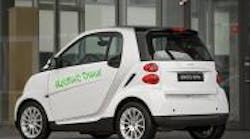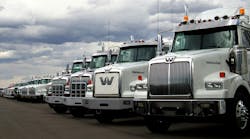A new report from J.D. Power and Associates suggests estimates of our quick adoption of hybrid (HEVs) and battery-electric vehicles (BEVs) in this country may be a bit of daydreaming.
The report, titled “Drive Green 2020: More Hope than Reality,” hits some key points, many of which I agree with. Among the items noted is the company’s projection that 5.2 million HEVs and BEVs will be sold in 2020. That represents just 7.3% of the 70.9 million passenger vehicles forecasted to be sold worldwide. By comparison, HEV and BEV vehicle sales are expected to be 954,500 this year, or about 2.2% of the 44.7 million vehicles expected to be sold.
Of course not. The report notes several factors that will contribute to the slow sales growth. First, to make the vehicles cost-effective, we would need a significant increase in the price of petroleum-based fuels. Second, there would have to be a significant breakthrough in technology to reduce costs. I’m sure every company who produces one of these vehicles is searching and hoping for the same thing. Finally, the government will have to get involved and create a policy, perhaps tax credits, to encourage consumers to purchase the vehicles.
J.D. Power, basing its conclusions on available information, deems none of these scenarios likely before 2020. I’ll agree wholeheartedly with that when it comes to oil prices. If you were the big oil-producing countries and you saw sales of your product start to slide, wouldn’t you lower prices? Didn’t we see just that a few years ago, as fewer and fewer Americans drove their cars, gasoline prices fell. Now, as more Americans are returning to their cars, prices are rising again.
“While considerable interest exists among governments, media and environmentalists in promoting HEVs and BEVs, consumers will ultimately decide whether these vehicles are commercially successful or not,” said John Humphrey, senior vice president of automotive operations at J.D. Power and Associates. “Based on our research of consumer attitudes toward these technologies—and barring significant changes to public policy, including tax incentives and higher fuel economy standards—we don’t anticipate a mass migration to green vehicles in the coming decade.”
The study looked at why consumers would be reluctant to make the splurge and in what should come as no surprise, the answer was cost.
“Many consumers say they are concerned about the environment, but when they find out how much a green vehicle is going to cost, their altruistic inclination declines considerably,” said Humphrey. “For example, among consumers in the U.S. who initially say they are interested in buying a hybrid vehicle, the number declines by some 50% when they learn of the extra $5,000, on average, it would cost to acquire the vehicle.”
The overall cost of ownership situation is not clear to consumers, the report noted. Is the price premium offset by the fuel savings? Maybe. But that may also depend on how long an individual owns a vehicle and what the cost of replace the battery pack is. It’s tough to find estimates on the total overall cost of owning an electric vehicle. And ultimately, when it comes time to make a significant purchase, the average American who considers long-term costs more important than the immediate hit on the pocketbook is few and far between.
And consideration needs to be given to driving range. What if I need to leave my house in a hurry and my car is not fully charged, what then? All these factors play a role in purchasing decisions.
The biggest factor driving governments to require improved fuel economy, which in turn could spur more hybrid and battery-electric vehicles, is the reduction of greenhouse gases. But, if our goal is to reduce emissions, is putting more electric vehicles on the road accomplishing that? Sure, that would improve fuel economy, but don’t we still use coal-fired plants to produce electricity in this country? What impact would more electricity use have?
“We don’t want to replace tailpipe emissions with the emissions of coal- and oil-fired power plants that produce the electricity used by BEVs,” said Humphrey. “We have to look at the carbon footprint of the entire energy supply chain.”
A study last year by Danish Petroleum Industry Association indicated that going electric may not be the way to go. The study claims that the “wheel-to-wheel” energy production cycle of vehicles is similar regardless of the type of power used for the vehicle. CO2 emissions from hybrids and electric cars are similar, it said, with diesel-powered vehicles emitting 8% more carbon. Gas-powered vehicles produce about 35% more emissions when compared to diesel.
At this point, there are simply more questions than answers.




